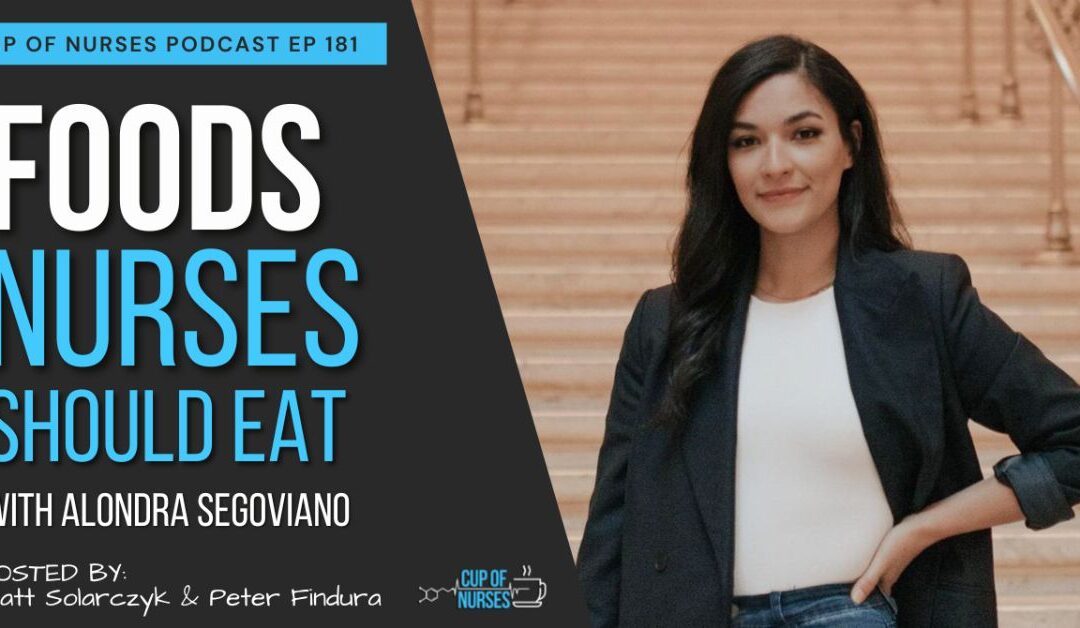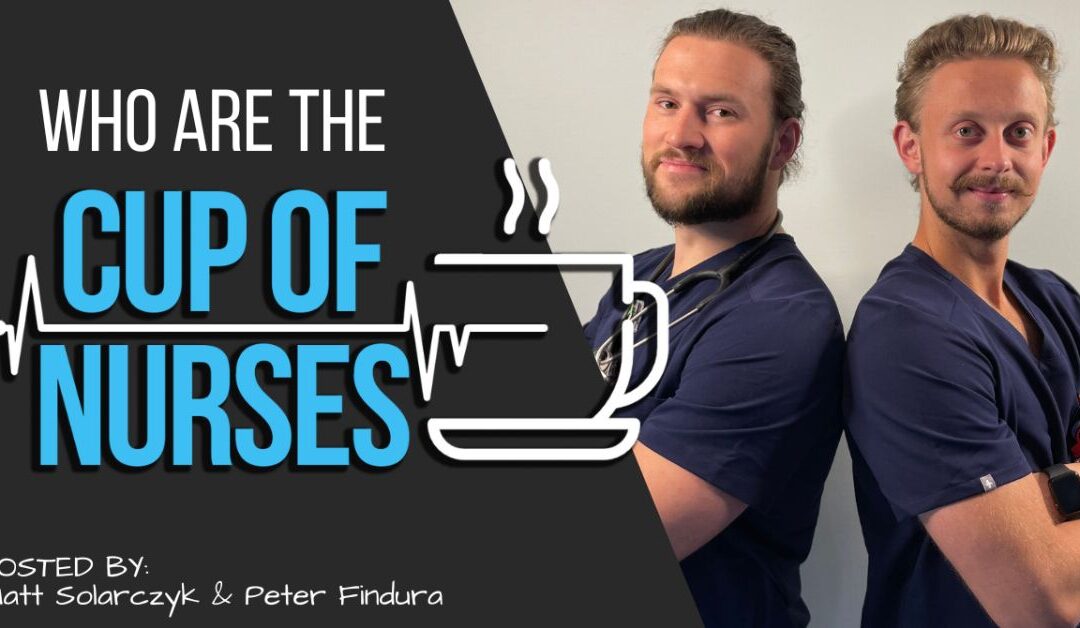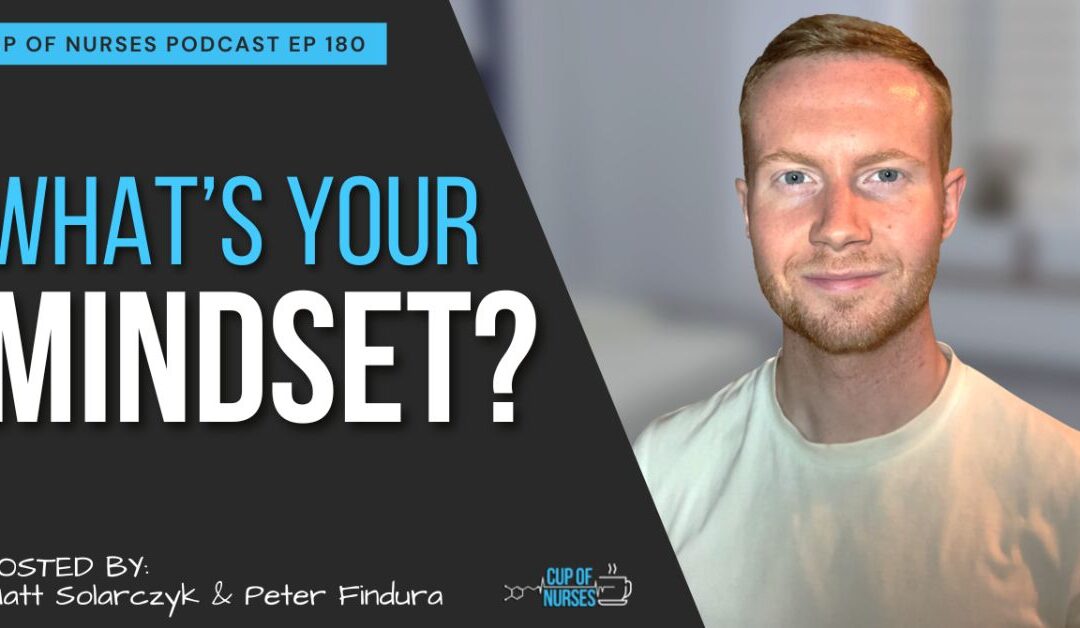
EP 183: How to Optimize Your Body with Aidan Muir
How to Optimize Your Body with Aidan Muir
Optimize your body through nutrition and you will live longer and healthier. Our bodies are naturally amazing; we heal even if we experience trauma, injuries, or wounds.
We can go through some of the most grueling physical activities and can still recover within a few days. But to achieve all that, it would be best to take care of our bodies the best way we can.
Athletes, in particular, are almost superhuman. They go through intense physical training and stress and experience brutal injuries.
But how do they stay healthy?
Are their bodies different from ours? Do they recover differently than us?
Nurses also experience stress and physical exhaustion. We may not be athletes, but our bodies also go through all stress and trauma. Nutrition plays a big role in keeping up with our work.
It is why it is essential for us to stay fit and eat healthily.
Our Guest
In this episode, we would like to introduce you to Aiden Muir. Aidan is a dietitian with a role split relatively evenly between seeing clients and creating content.
He has a broad range of areas of interest, but he mainly sees clients in sports nutrition (particularly strength athletes), weight loss, and gastrointestinal disorders.
We talk about gut health, how to build muscle, and how to optimize your body while working nights.
QUESTIONS FOR GUEST
The questions below are some we’d like to tackle. We often go off-topic, so we don’t expect to hit them all. If you have any ideas, please let us know.
Looking forward to our conversation!
These are the questions you had in Calendly. We’ll go off your questions and wherever else our conversation goes.
- Can you give us a background about yourself?
- How did you get involved and find a passion for sports nutrition, weight loss, and gastrointestinal disorders?
- As a nutritionist, what kind of diet do you follow, and is there a specific reason(s) for it?
- How do you develop a good relationship with food?
- Are there different nutritional requirements for men and women?
- When it comes to fat loss, is it any different?
- When it comes to building muscle, is it any different?
- How do you find your metabolic rate? Is there a way to get a rough estimate without having to o through tests?
- Should people be eating at night?
- A good portion of our audience works the night shift. Should people eat throughout the night while working? Or should the day be limited to a particular hour?
- Does our body absorb food differently at night, or does it have different nutritional requirements?
- What foods do you recommend for someone who struggles not to eat a night?
- What foods, in general, do you recommend, and what should people avoid eating while working nights?
- A good portion of our audience works the night shift. Should people eat throughout the night while working? Or should the day be limited to a particular hour?
- Do you think intermittent fasting is a good idea for someone that works nights?
- What is your general perspective on Intermittent fasting?
- When it comes to building muscle, what are some of the critical concepts of hypertrophy and nutrition?
- Do you believe in body recomposition, and what is the proper approach?
- Specifically, as someone that trains marital arts 4-5 times a week and weightlifters 3-4 times a week, how could I maximize my nutrition to not lose weight, gain muscle and lean out?
- Do you believe in body recomposition, and what is the proper approach?
- Creatine, how much do you need to get a performance boost, and how consistently do you need to take it?
- Do you recommend any sports supplements?
- Gut health is a big trending topic; we know that specific hormones are derived from the gut, what is the key to a happy, healthy gut?
- There is a big push for everything plant-based. What is your opinion on meat?
- Some studies show meat protein’s superiority over plant-based proteins. Is there a difference?
- I’ve read studies stating that meat proteins are more bioavailable, digestible, and have higher anabolic potential than plant-based proteins.
ENDING QUESTIONS
Before we end the show, we have one last question we like to ask all our guests. If you had the opportunity to have a Cup of coffee with anybody one last time, who would it be & why?
Follow Aidan on Instagram for more tips and tricks so you can optimize your body at @aidan_the_dietitian and for online consultations @idealnutrition__.
You can also listen to his Podcast at The Ideal Nutrition Podcast or visit his website at https://www.idealnutrition.com.au/ for more information.
Here’s why nutrition matters, click here and watch the full episode 👇
TIME STAMPS:
00:00 Introduction
01:45 How did you get involved and find a passion for sports nutrition?
04:03 What types of diets have you experimented with?
04:31 How much protein can your body tolerate?
06:25 How to develop a proper relationship with food?
08:49 How do beliefs play a role in nutrition?
11:25 Difference in Marco nutrition between Males and Females
15:08 Nutrition for night shift workers
17:21 What snacks should you be consuming?
18:32 Outcomes of Intermittent fasting?
21:24 Muscle building and intermittent fasting
25:19 Muscular hypertrophy and body recomp
28:28 How to figure out your metabolic needs?
34:18 What should be on your plate for health and vitality?
37:10 Key to a healthy gut microbe
40:11 Supplement recommendations
42:04 What is creatine?
47:07 How long do results last from creatine?
48:47 Nutrition Do’s & Dont’s
52:47 Wrapping up the episode





Recent Comments